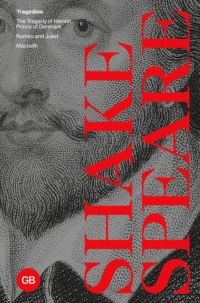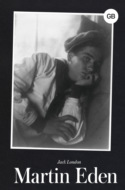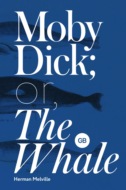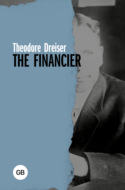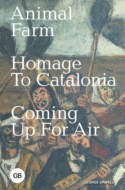Kitabı oku: «Tragedies: The Tragedy of Hamlet, Prince of Denmark. Romeo and Juliet. Macbeth / Трагедии: Трагедия Гамлета, принца Датского. Ромео и Джульетта. Макбет», sayfa 2
Scene III
A room in Polonius’s house.
Enter Laertes and Ophelia.
LAERTES.
My necessaries are embark’d. Farewell.
And, sister, as the winds give benefit
And convoy is assistant, do not sleep,
But let me hear from you.
OPHELIA.
Do you doubt that?
LAERTES.
For Hamlet, and the trifling of his favour,
Hold it a fashion and a toy in blood;
A violet in the youth of primy nature,
Forward, not permanent, sweet, not lasting;
The perfume and suppliance of a minute;
No more.
OPHELIA.
No more but so?
LAERTES.
Think it no more.
For nature crescent does not grow alone
In thews and bulk; but as this temple waxes,
The inward service of the mind and soul
Grows wide withal. Perhaps he loves you now,
And now no soil nor cautel doth besmirch
The virtue of his will; but you must fear,
His greatness weigh’d, his will is not his own;
For he himself is subject to his birth:
He may not, as unvalu’d persons do,
Carve for himself; for on his choice depends
The sanctity and health of this whole state;
And therefore must his choice be circumscrib’d
Unto the voice and yielding of that body
Whereof he is the head. Then if he says he loves you,
It fits your wisdom so far to believe it
As he in his particular act and place
May give his saying deed; which is no further
Than the main voice of Denmark goes withal.
Then weigh what loss your honour may sustain
If with too credent ear you list his songs,
Or lose your heart, or your chaste treasure open
To his unmaster’d importunity.
Fear it, Ophelia, fear it, my dear sister;
And keep you in the rear of your affection,
Out of the shot and danger of desire.
The chariest maid is prodigal enough
If she unmask her beauty to the moon.
Virtue itself scopes not calumnious strokes:
The canker galls the infants of the spring
Too oft before their buttons be disclos’d,
And in the morn and liquid dew of youth
Contagious blastments are most imminent.
Be wary then, best safety lies in fear.
Youth to itself rebels, though none else near.
OPHELIA.
I shall th’effect of this good lesson keep
As watchman to my heart. But good my brother,
Do not as some ungracious pastors do,
Show me the steep and thorny way to heaven;
Whilst like a puff’d and reckless libertine
Himself the primrose path of dalliance treads,
And recks not his own rede.
LAERTES.
O, fear me not.
I stay too long. But here my father comes.
Enter Polonius.
A double blessing is a double grace;
Occasion smiles upon a second leave.
POLONIUS.
Yet here, Laertes? Aboard, aboard, for shame.
The wind sits in the shoulder of your sail,
And you are stay’d for. There, my blessing with you.
[Laying his hand on Laertes’s head.]
And these few precepts in thy memory
Look thou character. Give thy thoughts no tongue,
Nor any unproportion’d thought his act.
Be thou familiar, but by no means vulgar.
Those friends thou hast, and their adoption tried,
Grapple them unto thy soul with hoops of steel;
But do not dull thy palm with entertainment
Of each new-hatch’d, unfledg’d comrade. Beware
Of entrance to a quarrel; but being in,
Bear’t that th’opposed may beware of thee.
Give every man thine ear, but few thy voice:
Take each man’s censure, but reserve thy judgment.
Costly thy habit as thy purse can buy,
But not express’d in fancy; rich, not gaudy:
For the apparel oft proclaims the man;
And they in France of the best rank and station
Are of a most select and generous chief in that.
Neither a borrower nor a lender be:
For loan oft loses both itself and friend;
And borrowing dulls the edge of husbandry.
This above all: to thine own self be true;
And it must follow, as the night the day,
Thou canst not then be false to any man.
Farewell: my blessing season this in thee.
LAERTES.
Most humbly do I take my leave, my lord.
POLONIUS.
The time invites you; go, your servants tend.
LAERTES.
Farewell, Ophelia, and remember well
What I have said to you.
OPHELIA.
’Tis in my memory lock’d,
And you yourself shall keep the key of it.
LAERTES.
Farewell.
[Exit.]
POLONIUS.
What is’t, Ophelia, he hath said to you?
OPHELIA.
So please you, something touching the Lord Hamlet.
POLONIUS.
Marry, well bethought:
’Tis told me he hath very oft of late
Given private time to you; and you yourself
Have of your audience been most free and bounteous.
If it be so, – as so ’tis put on me,
And that in way of caution, – I must tell you
You do not understand yourself so clearly
As it behoves my daughter and your honour.
What is between you? Give me up the truth.
OPHELIA.
He hath, my lord, of late made many tenders
Of his affection to me.
POLONIUS.
Affection! Pooh! You speak like a green girl,
Unsifted in such perilous circumstance.
Do you believe his tenders, as you call them?
OPHELIA.
I do not know, my lord, what I should think.
POLONIUS.
Marry, I’ll teach you; think yourself a baby;
That you have ta’en these tenders for true pay,
Which are not sterling. Tender yourself more dearly;
Or, – not to crack the wind of the poor phrase,
Roaming it thus, – you’ll tender me a fool.
OPHELIA.
My lord, he hath importun’d me with love
In honourable fashion.
POLONIUS.
Ay, fashion you may call it; go to, go to.
OPHELIA.
And hath given countenance to his speech, my lord,
With almost all the holy vows of heaven.
POLONIUS.
Ay, springes to catch woodcocks. I do know,
When the blood burns, how prodigal the soul
Lends the tongue vows: these blazes, daughter,
Giving more light than heat, extinct in both,
Even in their promise, as it is a-making,
You must not take for fire. From this time
Be something scanter of your maiden presence;
Set your entreatments at a higher rate
Than a command to parley. For Lord Hamlet,
Believe so much in him that he is young;
And with a larger tether may he walk
Than may be given you. In few, Ophelia,
Do not believe his vows; for they are brokers,
Not of that dye which their investments show,
But mere implorators of unholy suits,
Breathing like sanctified and pious bawds,
The better to beguile. This is for all.
I would not, in plain terms, from this time forth
Have you so slander any moment leisure
As to give words or talk with the Lord Hamlet.
Look to’t, I charge you; come your ways.
OPHELIA.
I shall obey, my lord.
[Exeunt.]
Scene IV
The platform.
Enter Hamlet, Horatio and Marcellus.
HAMLET.
The air bites shrewdly; it is very cold.
HORATIO.
It is a nipping and an eager air.
HAMLET.
What hour now?
HORATIO.
I think it lacks of twelve.
MARCELLUS.
No, it is struck.
HORATIO.
Indeed? I heard it not. It then draws near the season
Wherein the spirit held his wont to walk.
[A flourish of trumpets, and ordnance shot off within.]
What does this mean, my lord?
HAMLET.
The King doth wake tonight and takes his rouse,
Keeps wassail, and the swaggering upspring reels;
And as he drains his draughts of Rhenish down,
The kettle-drum and trumpet thus bray out
The triumph of his pledge.
HORATIO.
Is it a custom?
HAMLET.
Ay marry is’t;
And to my mind, though I am native here,
And to the manner born, it is a custom
More honour’d in the breach than the observance.
This heavy-headed revel east and west
Makes us traduc’d and tax’d of other nations:
They clepe us drunkards, and with swinish phrase
Soil our addition; and indeed it takes
From our achievements, though perform’d at height,
The pith and marrow of our attribute.
So oft it chances in particular men
That for some vicious mole of nature in them,
As in their birth, wherein they are not guilty,
Since nature cannot choose his origin,
By their o’ergrowth of some complexion,
Oft breaking down the pales and forts of reason;
Or by some habit, that too much o’erleavens
The form of plausive manners;-that these men,
Carrying, I say, the stamp of one defect,
Being Nature’s livery or Fortune’s star,-
His virtues else, – be they as pure as grace,
As infinite as man may undergo,
Shall in the general censure take corruption
From that particular fault. The dram of evil
Doth all the noble substance often doubt
To his own scandal.
HORATIO.
Look, my lord, it comes!
Enter Ghost.
HAMLET.
Angels and ministers of grace defend us!
Be thou a spirit of health or goblin damn’d,
Bring with thee airs from heaven or blasts from hell,
Be thy intents wicked or charitable,
Thou com’st in such a questionable shape
That I will speak to thee. I’ll call thee Hamlet,
King, father, royal Dane. O, answer me!
Let me not burst in ignorance; but tell
Why thy canoniz’d bones, hearsed in death,
Have burst their cerements; why the sepulchre,
Wherein we saw thee quietly inurn’d,
Hath op’d his ponderous and marble jaws
To cast thee up again! What may this mean,
That thou, dead corse, again in complete steel,
Revisit’st thus the glimpses of the moon,
Making night hideous, and we fools of nature
So horridly to shake our disposition
With thoughts beyond the reaches of our souls?
Say, why is this? Wherefore? What should we do?
[Ghost beckons Hamlet.]
HORATIO.
It beckons you to go away with it,
As if it some impartment did desire
To you alone.
MARCELLUS.
Look with what courteous action
It waves you to a more removed ground.
But do not go with it.
HORATIO.
No, by no means.
HAMLET.
It will not speak; then will I follow it.
HORATIO.
Do not, my lord.
HAMLET.
Why, what should be the fear?
I do not set my life at a pin’s fee;
And for my soul, what can it do to that,
Being a thing immortal as itself?
It waves me forth again. I’ll follow it.
HORATIO.
What if it tempt you toward the flood, my lord,
Or to the dreadful summit of the cliff
That beetles o’er his base into the sea,
And there assume some other horrible form
Which might deprive your sovereignty of reason,
And draw you into madness? Think of it.
The very place puts toys of desperation,
Without more motive, into every brain
That looks so many fadoms to the sea
And hears it roar beneath.
HAMLET.
It waves me still.
Go on, I’ll follow thee.
MARCELLUS.
You shall not go, my lord.
HAMLET.
Hold off your hands.
HORATIO.
Be rul’d; you shall not go.
HAMLET.
My fate cries out,
And makes each petty artery in this body
As hardy as the Nemean lion’s nerve.
[Ghost beckons.]
Still am I call’d. Unhand me, gentlemen.
[Breaking free from them.]
By heaven, I’ll make a ghost of him that lets me.
I say, away! – Go on, I’ll follow thee.
[Exeunt Ghost and Hamlet.]
HORATIO.
He waxes desperate with imagination.
MARCELLUS.
Let’s follow; ’tis not fit thus to obey him.
HORATIO.
Have after. To what issue will this come?
MARCELLUS.
Something is rotten in the state of Denmark.
HORATIO.
Heaven will direct it.
MARCELLUS.
Nay, let’s follow him.
[Exeunt.]
Scene V
A more remote part of the Castle.
Enter Ghost and Hamlet.
HAMLET.
Whither wilt thou lead me? Speak, I’ll go no further.
GHOST.
Mark me.
HAMLET.
I will.
GHOST.
My hour is almost come,
When I to sulph’rous and tormenting flames
Must render up myself.
HAMLET.
Alas, poor ghost!
GHOST.
Pity me not, but lend thy serious hearing
To what I shall unfold.
HAMLET.
Speak, I am bound to hear.
GHOST.
So art thou to revenge, when thou shalt hear.
HAMLET.
What?
GHOST.
I am thy father’s spirit,
Doom’d for a certain term to walk the night,
And for the day confin’d to fast in fires,
Till the foul crimes done in my days of nature
Are burnt and purg’d away. But that I am forbid
To tell the secrets of my prison-house,
I could a tale unfold whose lightest word
Would harrow up thy soul; freeze thy young blood,
Make thy two eyes like stars start from their spheres,
Thy knotted and combined locks to part,
And each particular hair to stand on end
Like quills upon the fretful porcupine.
But this eternal blazon must not be
To ears of flesh and blood. List, list, O, list!
If thou didst ever thy dear father love-
HAMLET.
O God!
GHOST.
Revenge his foul and most unnatural murder.
HAMLET.
Murder!
GHOST.
Murder most foul, as in the best it is;
But this most foul, strange, and unnatural.
HAMLET.
Haste me to know’t, that I, with wings as swift
As meditation or the thoughts of love
May sweep to my revenge.
GHOST.
I find thee apt;
And duller shouldst thou be than the fat weed
That rots itself in ease on Lethe wharf,
Wouldst thou not stir in this. Now, Hamlet, hear.
’Tis given out that, sleeping in my orchard,
A serpent stung me; so the whole ear of Denmark
Is by a forged process of my death
Rankly abus’d; but know, thou noble youth,
The serpent that did sting thy father’s life
Now wears his crown.
HAMLET.
O my prophetic soul!
Mine uncle!
GHOST.
Ay, that incestuous, that adulterate beast,
With witchcraft of his wit, with traitorous gifts,-
O wicked wit, and gifts, that have the power
So to seduce! – won to his shameful lust
The will of my most seeming-virtuous queen.
O Hamlet, what a falling off was there,
From me, whose love was of that dignity
That it went hand in hand even with the vow
I made to her in marriage; and to decline
Upon a wretch whose natural gifts were poor
To those of mine. But virtue, as it never will be mov’d,
Though lewdness court it in a shape of heaven;
So lust, though to a radiant angel link’d,
Will sate itself in a celestial bed
And prey on garbage.
But soft! methinks I scent the morning air;
Brief let me be. Sleeping within my orchard,
My custom always of the afternoon,
Upon my secure hour thy uncle stole
With juice of cursed hebenon in a vial,
And in the porches of my ears did pour
The leperous distilment, whose effect
Holds such an enmity with blood of man
That swift as quicksilver it courses through
The natural gates and alleys of the body;
And with a sudden vigour it doth posset
And curd, like eager droppings into milk,
The thin and wholesome blood. So did it mine;
And a most instant tetter bark’d about,
Most lazar-like, with vile and loathsome crust
All my smooth body.
Thus was I, sleeping, by a brother’s hand,
Of life, of crown, of queen at once dispatch’d:
Cut off even in the blossoms of my sin,
Unhous’led, disappointed, unanel’d;
No reckoning made, but sent to my account
With all my imperfections on my head.
O horrible! O horrible! most horrible!
If thou hast nature in thee, bear it not;
Let not the royal bed of Denmark be
A couch for luxury and damned incest.
But howsoever thou pursu’st this act,
Taint not thy mind, nor let thy soul contrive
Against thy mother aught; leave her to heaven,
And to those thorns that in her bosom lodge,
To prick and sting her. Fare thee well at once!
The glow-worm shows the matin to be near,
And ’gins to pale his uneffectual fire.
Adieu, adieu, adieu. Hamlet, remember me.
[Exit.]
HAMLET.
O all you host of heaven! O earth! What else?
And shall I couple hell? O, fie! Hold, my heart;
And you, my sinews, grow not instant old,
But bear me stiffly up. Remember thee?
Ay, thou poor ghost, while memory holds a seat
In this distracted globe. Remember thee?
Yea, from the table of my memory
I’ll wipe away all trivial fond records,
All saws of books, all forms, all pressures past,
That youth and observation copied there;
And thy commandment all alone shall live
Within the book and volume of my brain,
Unmix’d with baser matter. Yes, by heaven!
O most pernicious woman!
O villain, villain, smiling damned villain!
My tables. Meet it is I set it down,
That one may smile, and smile, and be a villain!
At least I am sure it may be so in Denmark.
[Writing.]
So, uncle, there you are. Now to my word;
It is ‘Adieu, adieu, remember me.’
I have sworn’t.
HORATIO and MARCELLUS.
[Within.] My lord, my lord.
MARCELLUS.
[Within.] Lord Hamlet.
HORATIO.
[Within.] Heaven secure him.
HAMLET.
So be it!
MARCELLUS.
[Within.] Illo, ho, ho, my lord!
HAMLET.
Hillo, ho, ho, boy! Come, bird, come.
Enter Horatio and Marcellus.
MARCELLUS.
How is’t, my noble lord?
HORATIO.
What news, my lord?
HAMLET.
O, wonderful!
HORATIO.
Good my lord, tell it.
HAMLET.
No, you’ll reveal it.
HORATIO.
Not I, my lord, by heaven.
MARCELLUS.
Nor I, my lord.
HAMLET.
How say you then, would heart of man once think it?-
But you’ll be secret?
HORATIO and MARCELLUS.
Ay, by heaven, my lord.
HAMLET.
There’s ne’er a villain dwelling in all Denmark
But he’s an arrant knave.
HORATIO.
There needs no ghost, my lord, come from the grave
To tell us this.
HAMLET.
Why, right; you are i’ the right;
And so, without more circumstance at all,
I hold it fit that we shake hands and part:
You, as your business and desires shall point you,-
For every man hath business and desire,
Such as it is;-and for my own poor part,
Look you, I’ll go pray.
HORATIO.
These are but wild and whirling words, my lord.
HAMLET.
I’m sorry they offend you, heartily;
Yes faith, heartily.
HORATIO.
There’s no offence, my lord.
HAMLET.
Yes, by Saint Patrick, but there is, Horatio,
And much offence too. Touching this vision here,
It is an honest ghost, that let me tell you.
For your desire to know what is between us,
O’ermaster’t as you may. And now, good friends,
As you are friends, scholars, and soldiers,
Give me one poor request.
HORATIO.
What is’t, my lord? We will.
HAMLET.
Never make known what you have seen tonight.
HORATIO and MARCELLUS.
My lord, we will not.
HAMLET.
Nay, but swear’t.
HORATIO.
In faith, my lord, not I.
MARCELLUS.
Nor I, my lord, in faith.
HAMLET.
Upon my sword.
MARCELLUS.
We have sworn, my lord, already.
HAMLET.
Indeed, upon my sword, indeed.
GHOST.
[Cries under the stage.] Swear.
HAMLET.
Ha, ha boy, say’st thou so? Art thou there, truepenny?
Come on, you hear this fellow in the cellarage.
Consent to swear.
HORATIO.
Propose the oath, my lord.
HAMLET.
Never to speak of this that you have seen.
Swear by my sword.
GHOST.
[Beneath.] Swear.
HAMLET.
Hic et ubique? Then we’ll shift our ground.
Come hither, gentlemen,
And lay your hands again upon my sword.
Never to speak of this that you have heard.
Swear by my sword.
GHOST.
[Beneath.] Swear.
HAMLET.
Well said, old mole! Canst work i’ th’earth so fast?
A worthy pioner! Once more remove, good friends.
HORATIO.
O day and night, but this is wondrous strange.
HAMLET.
And therefore as a stranger give it welcome.
There are more things in heaven and earth, Horatio,
Than are dreamt of in your philosophy. But come,
Here, as before, never, so help you mercy,
How strange or odd soe’er I bear myself,-
As I perchance hereafter shall think meet
To put an antic disposition on-
That you, at such times seeing me, never shall,
With arms encumber’d thus, or this head-shake,
Or by pronouncing of some doubtful phrase,
As ‘Well, we know’, or ‘We could and if we would’,
Or ‘If we list to speak’; or ‘There be and if they might’,
Or such ambiguous giving out, to note
That you know aught of me:-this not to do.
So grace and mercy at your most need help you,
Swear.
GHOST.
[Beneath.] Swear.
HAMLET.
Rest, rest, perturbed spirit. So, gentlemen,
With all my love I do commend me to you;
And what so poor a man as Hamlet is
May do t’express his love and friending to you,
God willing, shall not lack. Let us go in together,
And still your fingers on your lips, I pray.
The time is out of joint. O cursed spite,
That ever I was born to set it right.
Nay, come, let’s go together.
[Exeunt.]
Act II
Scene I
A room in Polonius’s house.
Enter Polonius and Reynaldo.
POLONIUS.
Give him this money and these notes, Reynaldo.
REYNALDO.
I will, my lord.
POLONIUS.
You shall do marvellous wisely, good Reynaldo,
Before you visit him, to make inquiry
Of his behaviour.
REYNALDO.
My lord, I did intend it.
POLONIUS.
Marry, well said; very well said. Look you, sir,
Enquire me first what Danskers are in Paris;
And how, and who, what means, and where they keep,
What company, at what expense; and finding
By this encompassment and drift of question,
That they do know my son, come you more nearer
Than your particular demands will touch it.
Take you as ’twere some distant knowledge of him,
As thus, ‘I know his father and his friends,
And in part him’-do you mark this, Reynaldo?
REYNALDO.
Ay, very well, my lord.
POLONIUS.
‘And in part him, but,’ you may say, ‘not well;
But if’t be he I mean, he’s very wild;
Addicted so and so;’ and there put on him
What forgeries you please; marry, none so rank
As may dishonour him; take heed of that;
But, sir, such wanton, wild, and usual slips
As are companions noted and most known
To youth and liberty.
REYNALDO.
As gaming, my lord?
POLONIUS.
Ay, or drinking, fencing, swearing,
Quarrelling, drabbing. You may go so far.
REYNALDO.
My lord, that would dishonour him.
POLONIUS.
Faith no, as you may season it in the charge.
You must not put another scandal on him,
That he is open to incontinency;
That’s not my meaning: but breathe his faults so quaintly
That they may seem the taints of liberty;
The flash and outbreak of a fiery mind,
A savageness in unreclaimed blood,
Of general assault.
REYNALDO.
But my good lord-
POLONIUS.
Wherefore should you do this?
REYNALDO.
Ay, my lord, I would know that.
POLONIUS.
Marry, sir, here’s my drift,
And I believe it is a fetch of warrant.
You laying these slight sullies on my son,
As ’twere a thing a little soil’d i’ th’ working,
Mark you,
Your party in converse, him you would sound,
Having ever seen in the prenominate crimes
The youth you breathe of guilty, be assur’d
He closes with you in this consequence;
‘Good sir,’ or so; or ‘friend,’ or ‘gentleman’-
According to the phrase or the addition
Of man and country.
REYNALDO.
Very good, my lord.
POLONIUS.
And then, sir, does he this,-
He does-What was I about to say?
By the mass, I was about to say something. Where did I leave?
REYNALDO.
At ‘closes in the consequence.’
At ‘friend or so,’ and ‘gentleman.’
POLONIUS.
At ‘closes in the consequence’ ay, marry!
He closes with you thus: ‘I know the gentleman,
I saw him yesterday, or t’other day,
Or then, or then, with such and such; and, as you say,
There was he gaming, there o’ertook in’s rouse,
There falling out at tennis’: or perchance,
‘I saw him enter such a house of sale’-
Videlicet, a brothel, or so forth. See you now;
Your bait of falsehood takes this carp of truth;
And thus do we of wisdom and of reach,
With windlasses, and with assays of bias,
By indirections find directions out.
So by my former lecture and advice
Shall you my son. You have me, have you not?
REYNALDO.
My lord, I have.
POLONIUS.
God b’ wi’ you, fare you well.
REYNALDO.
Good my lord.
POLONIUS.
Observe his inclination in yourself.
REYNALDO.
I shall, my lord.
POLONIUS.
And let him ply his music.
REYNALDO.
Well, my lord.
POLONIUS.
Farewell.
[Exit Reynaldo.]
Enter Ophelia.
How now, Ophelia, what’s the matter?
OPHELIA.
Alas, my lord, I have been so affrighted.
POLONIUS.
With what, in the name of God?
OPHELIA.
My lord, as I was sewing in my chamber,
Lord Hamlet, with his doublet all unbrac’d,
No hat upon his head, his stockings foul’d,
Ungart’red, and down-gyved to his ankle,
Pale as his shirt, his knees knocking each other,
And with a look so piteous in purport
As if he had been loosed out of hell
To speak of horrors, he comes before me.
POLONIUS.
Mad for thy love?
OPHELIA.
My lord, I do not know, but truly I do fear it.
POLONIUS.
What said he?
OPHELIA.
He took me by the wrist and held me hard;
Then goes he to the length of all his arm;
And with his other hand thus o’er his brow,
He falls to such perusal of my face
As he would draw it. Long stay’d he so,
At last, – a little shaking of mine arm,
And thrice his head thus waving up and down,
He rais’d a sigh so piteous and profound
As it did seem to shatter all his bulk
And end his being. That done, he lets me go,
And with his head over his shoulder turn’d
He seem’d to find his way without his eyes,
For out o’ doors he went without their help,
And to the last bended their light on me.
POLONIUS.
Come, go with me. I will go seek the King.
This is the very ecstasy of love,
Whose violent property fordoes itself,
And leads the will to desperate undertakings,
As oft as any passion under heaven
That does afflict our natures. I am sorry,-
What, have you given him any hard words of late?
OPHELIA.
No, my good lord; but as you did command,
I did repel his letters and denied
His access to me.
POLONIUS.
That hath made him mad.
I am sorry that with better heed and judgment
I had not quoted him. I fear’d he did but trifle,
And meant to wreck thee. But beshrew my jealousy!
It seems it is as proper to our age
To cast beyond ourselves in our opinions
As it is common for the younger sort
To lack discretion. Come, go we to the King.
This must be known, which, being kept close, might move
More grief to hide than hate to utter love.
[Exeunt.]
